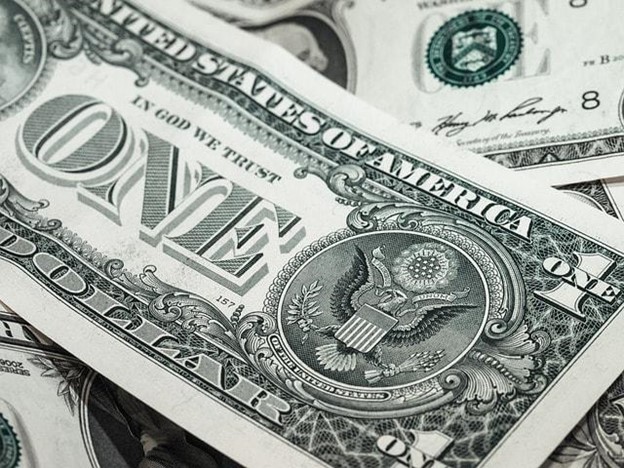At NorthPennNow, we like to cover questions our readers send in from across the country, and our behavioral healthcare questions often center around cost.
And when people are seeking drug and alcohol rehab, one of the most common questions people ask is, “How much does alcohol rehab cost in Georgia?” (and other states as well).
We know this is a crucial factor for anyone who’s ready to take the steps toward recovery but is also worried about financial commitments.
Understanding the different costs associated with alcohol rehab can help individuals and their families prepare for treatment without unnecessary stress. In Georgia, like elsewhere, the cost of alcohol rehab can vary greatly depending on several factors, such as the type of treatment, the facility, and additional services provided.
Drug addiction treatment is also a crucial investment that not only helps reduce substance use and its associated costs but also facilitates improvements in personal relationships and productivity.
Let’s break it all down in detail now!

When considering the cost of drug and alcohol rehab, it’s important to understand the various factors that can influence the overall expense.
The type of treatment program, the facility’s location, and the amenities offered all play a significant role in determining the cost.
Before diving into the specific numbers, it’s important to understand the various factors that influence the cost of drug and alcohol treatment in Georgia. These include:
Alcohol rehab programs typically fall into one of two categories: inpatient or outpatient. Inpatient programs involve staying at the facility for an extended period, which provides 24/7 care, accommodation, and a structured environment for recovery. Outpatient programs allow individuals to receive treatment during the day while continuing their daily lives.
Inpatient Rehab
Inpatient drug rehab is more expensive due to the cost of housing, meals, and continuous supervision. On average, inpatient programs in Georgia can cost anywhere from $5,000 to $30,000 for a 30-day program, depending on the facility’s quality and amenities.
Outpatient Rehab
Outpatient programs tend to be less costly, with prices ranging from $1,000 to $10,000 for a three-month program. The flexibility of outpatient rehab allows individuals to maintain work and family obligations while undergoing treatment.
The type of rehab center you choose can significantly impact the cost of treatment. Inpatient programs, for instance, are generally more expensive than outpatient programs due to the comprehensive care they provide.
Inpatient rehab involves staying at the facility full-time, which includes 24/7 medical supervision, meals, and accommodation. This level of care ensures a structured environment conducive to recovery but comes at a higher price.
In Georgia, the cost of inpatient programs can range from $10,000 to $50,000 or more per month, depending on the length of the program and the location of the center.
Luxury rehabs in the Peach State, which offer high-end amenities such as private rooms, gourmet meals, and spa services, can be even more expensive, with prices ranging from $50,000 to $100,000 or more per month.
On the other hand, outpatient programs are often less costly because they do not require around-the-clock care. These programs allow individuals to live at home and attend treatment sessions during the day.
The cost of outpatient rehab can vary widely, from $1,000 to $10,000 or more per month, depending on the frequency and type of treatment. Some outpatient programs may also offer sliding scale fees or financing options to make treatment more affordable.

The length of the program significantly impacts the overall cost. A 30-day program will naturally be less expensive than a 90-day or longer treatment.
However, longer treatments often yield better long-term results, as they allow more time for patients to work through their recovery in a supportive environment.
Rehabs with luxurious amenities—such as private rooms, gourmet meals, spa treatments, and scenic environments—will generally be more expensive than standard facilities.
For example, luxury alcohol rehabs in areas like North Georgia or near Atlanta can cost upwards of $50,000 or more per month. These facilities often cater to clients looking for high-end, discreet treatment options.
However, Georgia is home to a top addiction treatment center in the Peach State, which offers a range of cost options without sacrificing quality of care. You can find treatment options that provide excellent care without the high price tag, especially if you look beyond the metropolitan areas.
Some rehab centers offer specialized treatments such as holistic therapies, dual diagnosis (addressing mental health disorders alongside addiction), or couples treatment.
These services can add to the overall cost of rehab in various ways.
For example, alcohol treatment for couples outside Atlanta can come with additional expenses due to the need for tailored programs that address both individuals’ needs simultaneously.
There are several types of addiction treatment available, each with its own unique costs and benefits. Understanding these options can help you choose the best treatment plan for your needs and budget.
Now that we’ve covered the factors influencing rehab costs, let’s take a closer look at the average expenses associated with different types of treatment programs for drug and alcohol addiction.
Detox is often the first step in alcohol rehab, and its cost can vary depending on whether you choose a medical detox or a more standard program.
In Georgia, detox programs can cost between $300 and $800 per day. Medical detox, which involves 24-hour supervision by healthcare professionals, tends to be more expensive due to the need for specialized care and medications.
As mentioned earlier, inpatient rehab for problem drinking is usually more costly because it includes room and board in addition to treatment. For a 30-day stay, you can expect to pay anywhere from $5,000 for a basic program to $30,000 or more for a luxury facility.
Longer stays, such as 60 or 90 days, will naturally increase the overall price. However, some facilities offer sliding scale fees or payment plans to help manage the cost.
Outpatient rehab is more affordable, with costs ranging from $1,000 to $10,000 depending on the level of care required.
Intensive outpatient programs (IOPs), which provide more comprehensive care than standard outpatient treatment, typically cost more due to the additional hours of therapy and medical supervision involved.
If you’re looking for a facility with high-end amenities, you’ll be paying a premium for services. Luxury alcohol rehabs in Georgia can range from $30,000 to $100,000 per month, depending on the location, staff-to-patient ratio, and the type of additional therapies offered.
These facilities often offer privacy, individualized care, and top-tier accommodations, making them an attractive option for those who can afford it.

The cost of addiction extends far beyond the price of treatment. According to the Substance Abuse and Mental Health Services Administration (SAMHSA), the financial burden of substance abuse treatment in the United States is estimated to be over $600 billion per year.
This figure includes various costs associated with addiction, such as:
Fortunately, most insurance plans will cover at least part of the cost of alcohol rehab. The extent of coverage depends on the specifics of your insurance policy and the rehab center you choose. Insurance policies that cover substance abuse treatment may include:
Many private health insurance providers cover a portion of alcohol rehab costs, particularly if the rehab center is in-network. It’s important to check with both your insurance company and the rehab facility to confirm what portion of the costs will be covered.
Georgia residents who qualify for Medicaid can receive coverage for alcohol rehab, although this coverage typically applies to standard facilities rather than luxury rehabs.
Georgia also offers state-funded programs for those who cannot afford private rehab. These programs provide essential care but may have long waiting lists.
The Affordable Care Act (ACA) has significantly improved access to substance abuse treatment, including rehab. Under the ACA, insurance companies are required to cover substance abuse treatment, making it more affordable for many individuals who previously could not afford it.
The ACA also mandates that insurance companies cover mental health services, including counseling and therapy. This is crucial for individuals in recovery, as addressing underlying mental health issues is often a key component of successful addiction treatment.
Additionally, the ACA prohibits insurance companies from denying coverage based on pre-existing conditions. This means that individuals who have struggled with addiction in the past can still access the treatment they need without fear of being denied coverage.
Overall, the ACA has made it easier for individuals to access rehab and other substance abuse treatment services. By requiring insurance companies to cover these services, the ACA has helped to make treatment more affordable and accessible to those who need it.
While the cost of alcohol rehab can be intimidating, there are several ways to make it more affordable:
At NorthPennNow, we know that the cost of alcohol rehab in Georgia and across the US varies widely based on the type of treatment, the facility, and the services provided.
While inpatient programs and luxury facilities can be expensive, there are more affordable options available, particularly through outpatient programs, state-funded centers, and sliding scale fees.
We hope our resource has shown exactly why this is.
No matter the price range, the most important thing is to find a program that meets your needs and helps you or your loved one on the path to recovery.
Whether you're considering a top addiction treatment center in the Peach State or exploring alcohol treatment for couples outside Atlanta, help is available for every budget and situation.
By carefully evaluating your options and exploring financial assistance, we firmly believe you can find a rehab program that fits your budget while offering the support needed to overcome issues with alcohol.